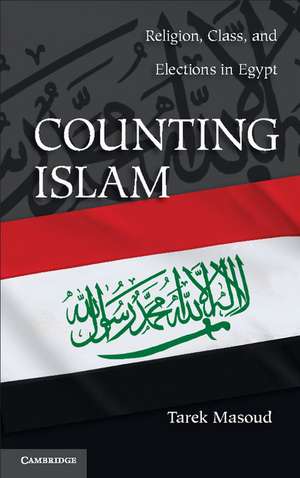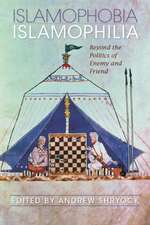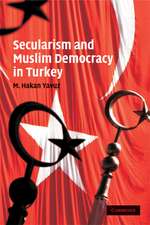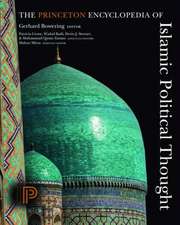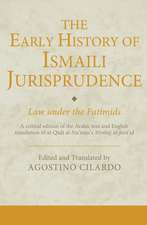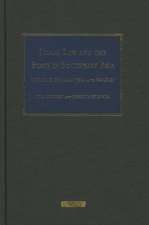Counting Islam: Religion, Class, and Elections in Egypt: Problems of International Politics
Autor Tarek Masouden Limba Engleză Paperback – 27 apr 2014
| Toate formatele și edițiile | Preț | Express |
|---|---|---|
| Paperback (1) | 229.56 lei 6-8 săpt. | |
| Cambridge University Press – 27 apr 2014 | 229.56 lei 6-8 săpt. | |
| Hardback (1) | 602.35 lei 6-8 săpt. | |
| Cambridge University Press – 27 apr 2014 | 602.35 lei 6-8 săpt. |
Din seria Problems of International Politics
-
 Preț: 238.60 lei
Preț: 238.60 lei -
 Preț: 200.13 lei
Preț: 200.13 lei -
 Preț: 227.61 lei
Preț: 227.61 lei -
 Preț: 224.24 lei
Preț: 224.24 lei -
 Preț: 159.18 lei
Preț: 159.18 lei -
 Preț: 251.27 lei
Preț: 251.27 lei -
 Preț: 205.41 lei
Preț: 205.41 lei -
 Preț: 252.21 lei
Preț: 252.21 lei -
 Preț: 247.41 lei
Preț: 247.41 lei -
 Preț: 197.90 lei
Preț: 197.90 lei -
 Preț: 332.68 lei
Preț: 332.68 lei -
 Preț: 319.99 lei
Preț: 319.99 lei -
 Preț: 283.41 lei
Preț: 283.41 lei -
 Preț: 282.48 lei
Preț: 282.48 lei -
 Preț: 226.17 lei
Preț: 226.17 lei - 11%
 Preț: 697.28 lei
Preț: 697.28 lei
Preț: 229.56 lei
Nou
Puncte Express: 344
Preț estimativ în valută:
43.93€ • 45.70$ • 36.27£
43.93€ • 45.70$ • 36.27£
Carte tipărită la comandă
Livrare economică 14-28 aprilie
Preluare comenzi: 021 569.72.76
Specificații
ISBN-13: 9780521279116
ISBN-10: 0521279119
Pagini: 276
Ilustrații: 45 b/w illus. 22 tables
Dimensiuni: 152 x 226 x 18 mm
Greutate: 0.39 kg
Ediția:New.
Editura: Cambridge University Press
Colecția Cambridge University Press
Seria Problems of International Politics
Locul publicării:New York, United States
ISBN-10: 0521279119
Pagini: 276
Ilustrații: 45 b/w illus. 22 tables
Dimensiuni: 152 x 226 x 18 mm
Greutate: 0.39 kg
Ediția:New.
Editura: Cambridge University Press
Colecția Cambridge University Press
Seria Problems of International Politics
Locul publicării:New York, United States
Cuprins
Introduction: Islam's steady march; 1. Explaining Islamist dominion; Part I. Elections under Authoritarianism: 2. Clientelism and class: the tragedy of leftist opposition in Mubarak's Egypt; 3. The Islamic machine?; 4. Winning in the 'well-run casino'; Part II. After the 'Arab Spring': 5. God, mammon, and transition; 6. Islam's organizational advantage?; 7. Conclusion; Epilogue: requiescat in pace?
Recenzii
'This book provides the most compelling explanation yet for why Islamist parties have stunned autocrats and oppositionists across the Middle East. With a breathtaking set of data collected in the field, Tarek Masoud demonstrates that the Egyptian Muslim Brotherhood won elections through a combination of luck and political savvy, not sermons or social services … Lucidly written for scholars, students, and policy makers, Counting Islam offers unparalleled insight into the maelstrom of repression and faith engulfing the Arab Spring.' Jason Brownlee, University of Texas, Austin, and author of Authoritarianism in an Age of Democratization and Democracy Prevention
'This book asks an important question: why do poor Egyptians turn their backs on pro-poor leftist parties and instead vote for religiously conservative parties such as the Muslim Brotherhood and the Salafi Nur Party? Drawing on a combination of qualitative and quantitative evidence, Masoud discounts suggestions that they do so because they prioritize faith above material interests. Instead, he shows that most Egyptians who voted for the Muslim Brotherhood in Egypt's first democratic elections did so because it was better able than its secular rivals to convince them that it would redistribute wealth and shore up Egypt's social safety net … This empirically rich, carefully argued book is an essential contribution to the literature on political Islam, religion and politics, and political parties in new and developing democracies.' Amaney Jamal, Princeton University, and author of Race and Arab Americans Before and After 9/11 and Barriers to Democracy
'The Islamist sweep of elections in the Middle East has been a source of both curiosity and worry. Tarek Masoud relies on data from four decades of electoral politics in Egypt to show that the power of Islamic parties comes not from religious rhetoric but rather from the ability to speak to the material concerns of voters. This is an important book, meticulously researched, well-written and clearly argued. It demystifies Middle East politics and goes to the heart of the most important questions asked about the role of Islam in politics. An important corrective to popular misperceptions at a critical historical juncture, this book is a must-read for academics and policy makers alike.' Vali Nasr, Dean, Johns Hopkins University Paul H. Nitze School of Advanced International Studies, and author of The Rise of Islamic Capitalism and The Dispensable Nation
'In Counting Islam, Tarek Masoud asks how Islamists have performed in Egyptian electoral politics, both under authoritarianism and in their sweeping victories in the democratic elections that followed the overthrow of Hosni Mubarak in 2011 … Ultimately, Masoud's theory posits an intriguing causal mechanism: Institutional embeddedness provides opportunities for communication that shapes perceptions.' Rana B. Khoury, Arab Studies Journal
'This book asks an important question: why do poor Egyptians turn their backs on pro-poor leftist parties and instead vote for religiously conservative parties such as the Muslim Brotherhood and the Salafi Nur Party? Drawing on a combination of qualitative and quantitative evidence, Masoud discounts suggestions that they do so because they prioritize faith above material interests. Instead, he shows that most Egyptians who voted for the Muslim Brotherhood in Egypt's first democratic elections did so because it was better able than its secular rivals to convince them that it would redistribute wealth and shore up Egypt's social safety net … This empirically rich, carefully argued book is an essential contribution to the literature on political Islam, religion and politics, and political parties in new and developing democracies.' Amaney Jamal, Princeton University, and author of Race and Arab Americans Before and After 9/11 and Barriers to Democracy
'The Islamist sweep of elections in the Middle East has been a source of both curiosity and worry. Tarek Masoud relies on data from four decades of electoral politics in Egypt to show that the power of Islamic parties comes not from religious rhetoric but rather from the ability to speak to the material concerns of voters. This is an important book, meticulously researched, well-written and clearly argued. It demystifies Middle East politics and goes to the heart of the most important questions asked about the role of Islam in politics. An important corrective to popular misperceptions at a critical historical juncture, this book is a must-read for academics and policy makers alike.' Vali Nasr, Dean, Johns Hopkins University Paul H. Nitze School of Advanced International Studies, and author of The Rise of Islamic Capitalism and The Dispensable Nation
'In Counting Islam, Tarek Masoud asks how Islamists have performed in Egyptian electoral politics, both under authoritarianism and in their sweeping victories in the democratic elections that followed the overthrow of Hosni Mubarak in 2011 … Ultimately, Masoud's theory posits an intriguing causal mechanism: Institutional embeddedness provides opportunities for communication that shapes perceptions.' Rana B. Khoury, Arab Studies Journal
Notă biografică
Descriere
This book explains why Islamist parties have dominated the politics of Egypt for the better part of fifty years.
